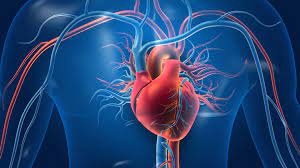Breast cancer is a battle that millions of individuals around the world face each year. While medical advancements have significantly improved treatment and survival rates, there are certain aspects of this journey that are often overlooked or underestimated. In this comprehensive guide, we delve into the hidden truths and challenges of breast cancer, offering insights based on personal experiences and credible sources.
Breast Cancer Truths: Sometimes You’re Not Fine
Breast Cancer Truths: Sometimes You’re Not Fine is a phrase that encapsulates the emotional rollercoaster and harsh realities that individuals with breast cancer encounter throughout their journey. It’s crucial to acknowledge that the path to recovery isn’t always smooth, and understanding these truths is essential for patients, caregivers, and society at large.
Unveiling the Hidden Realities
The Mental and Emotional Strain
Dealing with breast cancer goes beyond physical symptoms. The emotional toll can be overwhelming. The fear, anxiety, and uncertainty that accompany a diagnosis can impact mental well-being. It’s vital to seek emotional support and therapy to navigate this aspect effectively.
Body Image and Self-Esteem
Undergoing treatments like mastectomy or chemotherapy can significantly alter one’s physical appearance. Many individuals struggle with body image and self-esteem issues, affecting their overall quality of life. Support groups and counseling can help address these concerns.
Financial Burdens
The financial strain of breast cancer treatment is often underestimated. Medical bills, travel expenses, and loss of income can lead to financial instability. Exploring financial assistance programs and resources can provide relief during this challenging time.
Impact on Relationships
Breast cancer can strain relationships with family, friends, and partners. Communication breakdowns and role shifts are common. Open dialogue and couples counseling can aid in maintaining healthy relationships during treatment.
Lingering Effects of Treatment
Even after successful treatment, survivors may experience lingering physical effects such as fatigue, pain, and cognitive difficulties. It’s essential to manage expectations and seek medical guidance for a smoother transition to post-treatment life.
The Stigma Surrounding Mental Health
While physical health is prioritized, mental health often takes a back seat. Breast cancer survivors may face stigma when discussing their emotional struggles. Breaking this stigma is crucial for holistic well-being.
Coping Mechanisms and Resilience
Building a Support System
Surrounding oneself with a supportive network of friends, family, and support groups can make a significant difference in navigating the breast cancer journey.
Embracing Self-Care
Prioritizing self-care activities like meditation, exercise, and hobbies can help individuals regain a sense of control and normalcy in their lives.
Seeking Professional Help
Mental health professionals play a crucial role in helping individuals cope with the emotional challenges of breast cancer. Therapy and counseling provide a safe space to process feelings and fears.
Educating Society
Raising awareness about the hidden truths of breast cancer is essential to reduce stigma, increase understanding, and foster empathy among the general public.
Frequently Asked Questions (FAQs)
Q: How common is breast cancer? A: Breast cancer is one of the most prevalent forms of cancer, affecting millions worldwide.
Q: Are men also at risk of breast cancer? A: Yes, though less common, men can develop breast cancer due to similar risk factors.
Q: Can a healthy lifestyle prevent breast cancer? A: While a healthy lifestyle can lower the risk, it cannot guarantee prevention.
Q: What role does genetics play in breast cancer? A: Genetic factors can contribute to breast cancer risk, but not all cases are hereditary.
Q: How can I support a loved one with breast cancer? A: Offering emotional support, accompanying them to appointments, and listening can make a significant difference.
Q: Are there resources for financial assistance during treatment? A: Many organizations offer financial support for breast cancer patients; researching available resources is recommended.
Conclusion
The journey through breast cancer is undoubtedly challenging, encompassing both physical and emotional struggles. By acknowledging and addressing these hidden truths, we can better support those affected by breast cancer and work towards a more empathetic and informed society.








